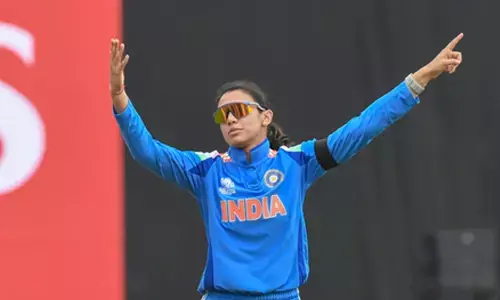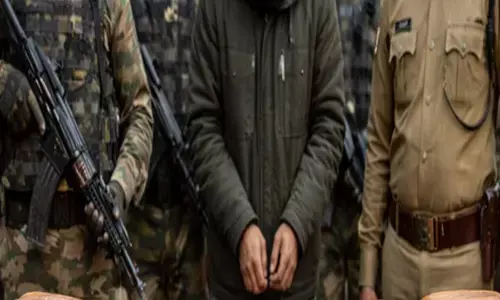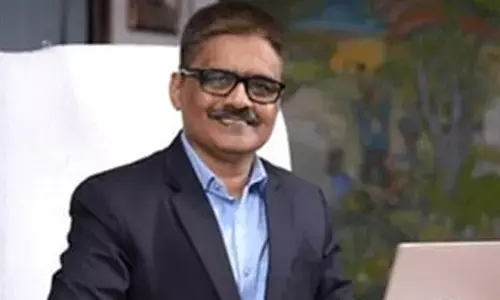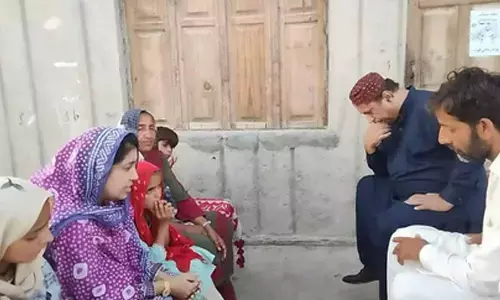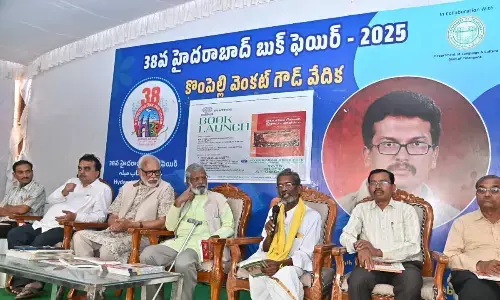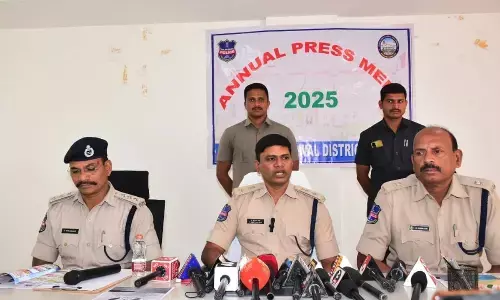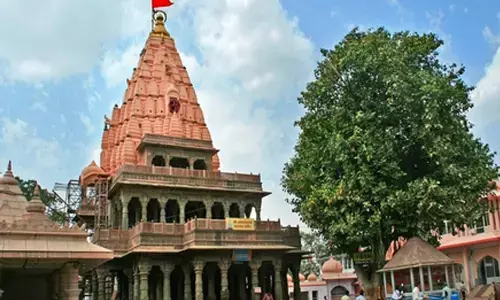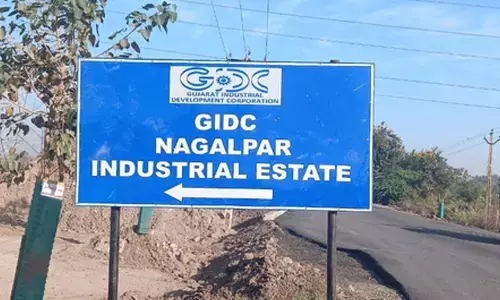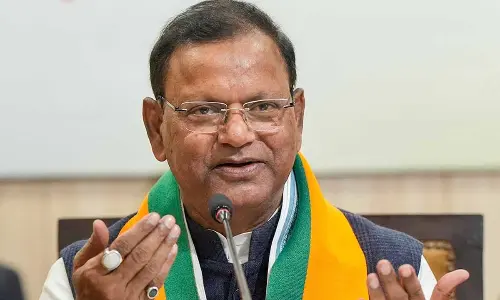Paradigm shift in Indian poll scenario
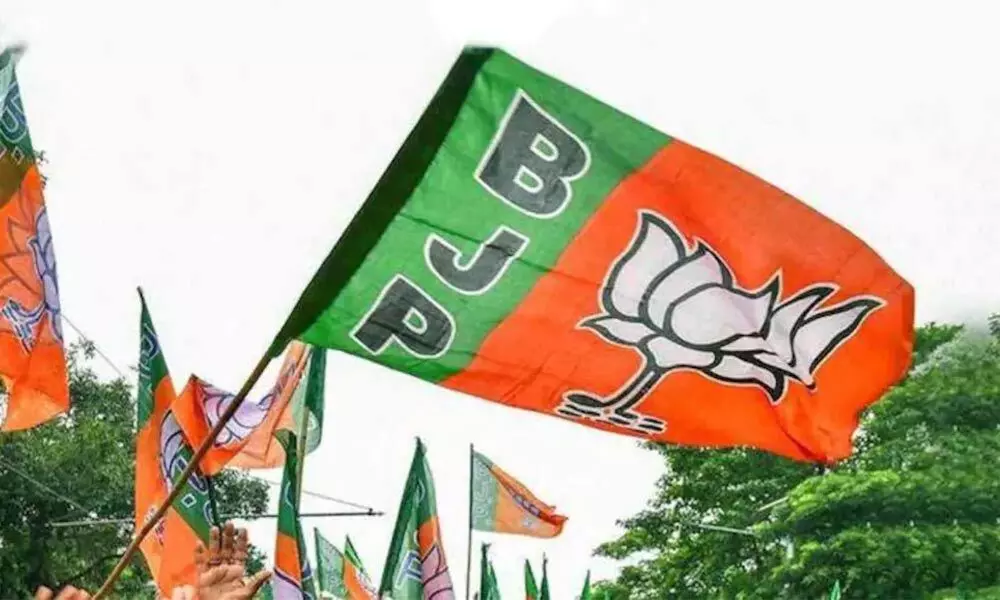
Paradigm shift in Indian poll scenario
Such things can happen only in India. On one hand, the active cases of Covid-19 are increasing day by day.
Such things can happen only in India. On one hand, the active cases of Covid-19 are increasing day by day. Prime Minister Narendra Modi has not only been reviewing the situation with officials but also held a meeting with Chief Ministers of States on Thursday. The Delhi government has asked private offices to work from home, shut restaurants and bars, but still neither the political parties nor the Election Commission of India deems it fit to postpone the elections to five States.
Experts say that there would have been no constitutional breakdown if the polls are postponed by a month or so as the Covid-19 third wave curve is likely to be flattened by the end of February or early March. The ECI says that they did not postpone polls because no political party demanded it during the meeting they had with them.
Why the political parties chose not to seek postponement is something intriguing. All of them call themselves responsible parties; when the number of casualties increases due to Covid-19, they blame the government for mishandling the situation, while the fact is no politician follows appropriate Covid behaviour. Though the political parties have not asked for postponement, the ECI, if it wanted, could have postponed the polls in view of the rising cases of Covid-19. But the Chief Election Commissioner Sushil Chandra said, "There were a lot of queries on this (Covid-19) issue. The decision to go ahead was taken after much discussion, the situation is very dynamic… Article 172 (1) of the Constitution gives the period of any state Assembly at maximum five years… Holding of timely elections is the essence of democratic governance and this task has been given to the Election Commission." It may be recalled how the Commission had come under heavy criticism during the West Bengal Assembly elections which was spread over eight phases over five weeks between March and April 2021 as India was grappling with the second wave – the deadliest in terms of the death toll and the number of cases in the country. This forced the poll panel to finally restrict campaigning towards the remaining two phases of the elections.
Hence, the EC said that this time they decided on imposing tough restrictions and came up with a new concept of virtual campaign. This came as a bolt from blue for the opposition parties which now seem to have developed cold feet. The biggest worry for these parties now is what would happen if the EC extends the restrictions beyond January 15. Even if it permits physical campaign, the parties feel they will hardly have any time to cover the constituencies that would go to polls under phase-1.
On the face of it, all parties are putting up a brave face saying that they are prepared for virtual campaign, however, in reality they are highly worried because even if they are prepared to take up campaign, the people are not prepared to receive it.
The BJP says they plan to use 3D Studio Mix technology through which leaders sitting at two different places can be shown on a podium. For some time, similar messages could be seen on WhatsApp groups and twitter handles of BJP supporters. The party already has more than 1.5 lakh booth-level WhatsApp groups in each state, which will be used to hold these virtual rallies.
The Aam Aadmi Party termed the EC directive for virtual campaigns a blessing and said it would use its experience in social media to whip up support. But the question is how they will monitor whether their virtual campaign has reached the targeted audience or not. In physical meetings, crowds can be mobilised and their mood can be gauged. But in virtual meetings it is difficult to see whether their speeches have been heard by the voters or not. Some say that the views on YouTube, twitter and other social media can help them in analysing the data. The views and likes will not indicate whether the viewer is a voter or not. It could be the party activists who would have viewed the speeches and that itself could have run into lakhs. What use it can it be for the political parties?
The reaction of a BJP leader in Lucknow reflects the ground reality. He said there are many issues regarding virtual meetings. In rural and semi urban areas, there are issues like poor internet connectivity. Even if a majority of the people have smartphones, they prefer watching movies and web series and not political meetings. He said his own driver said he was not going to go for additional recharge of data to watch political speeches.
The parties and the leaders are worried that if the restrictions continue beyond January 15, it may not be possible to connect directly with the voters. Door-to-door campaigns help them in not only connecting with people that also distribute gifts and cash to the voters which has become a menace in all elections from local body to Lok Sabha. We have seen how every party vies with others in this race. Maybe, this would be the only positive aspect of virtual campaign if the EC decides to extend the restrictions.
SP national spokesperson Ashutosh Verma agreed that it would be difficult to reach out to rural folk through digital platforms. The reason being, in rural areas, 40 per cent people do not use smartphones. This 40 per cent are the hardcore voters who stand in queues and cast their votes unlike the urban voters who do not show seriousness in exercising their franchise. The only hope is that the youth would not only listen to the speeches on YouTube or other social media platforms but would also get updates on thousands of Whatsapp groups that have been created by the political parties.
But then, this experiment has a positive side as well. If it becomes successful, it may result in ushering in a new chapter in the electoral politics of India. The political parties can opt for virtual campaigns in future elections as well and that would reduce the poll expenditure incurred by candidates and parties. But to permanently adopt such a system, political parties will require greater levels of maturity and broadmindedness. The possibility of indulging in mudslinging on social media where all limits of decency in terms of language would be thrown to winds is also not ruled out and this would become a new headache for the ECI to control. All the best to all contestants.
Conclusion: The EC decision to conduct polls for the five State assemblies in time seems to be not right. By this, it's venturing an avoidable risky task, given the raging pandemic. The elections could have waited a few months without any constitutional breakdown. The Allahabad High Court had also opined in that direction. An extraordinary situation demands an extraordinary decision. All energies of the government and its wings should have been focused only on the fight against corona. But the politicians seem to have taken the Allahabad High Court observation as inspiration and have taken an extraordinary decision in an extraordinary situation.








